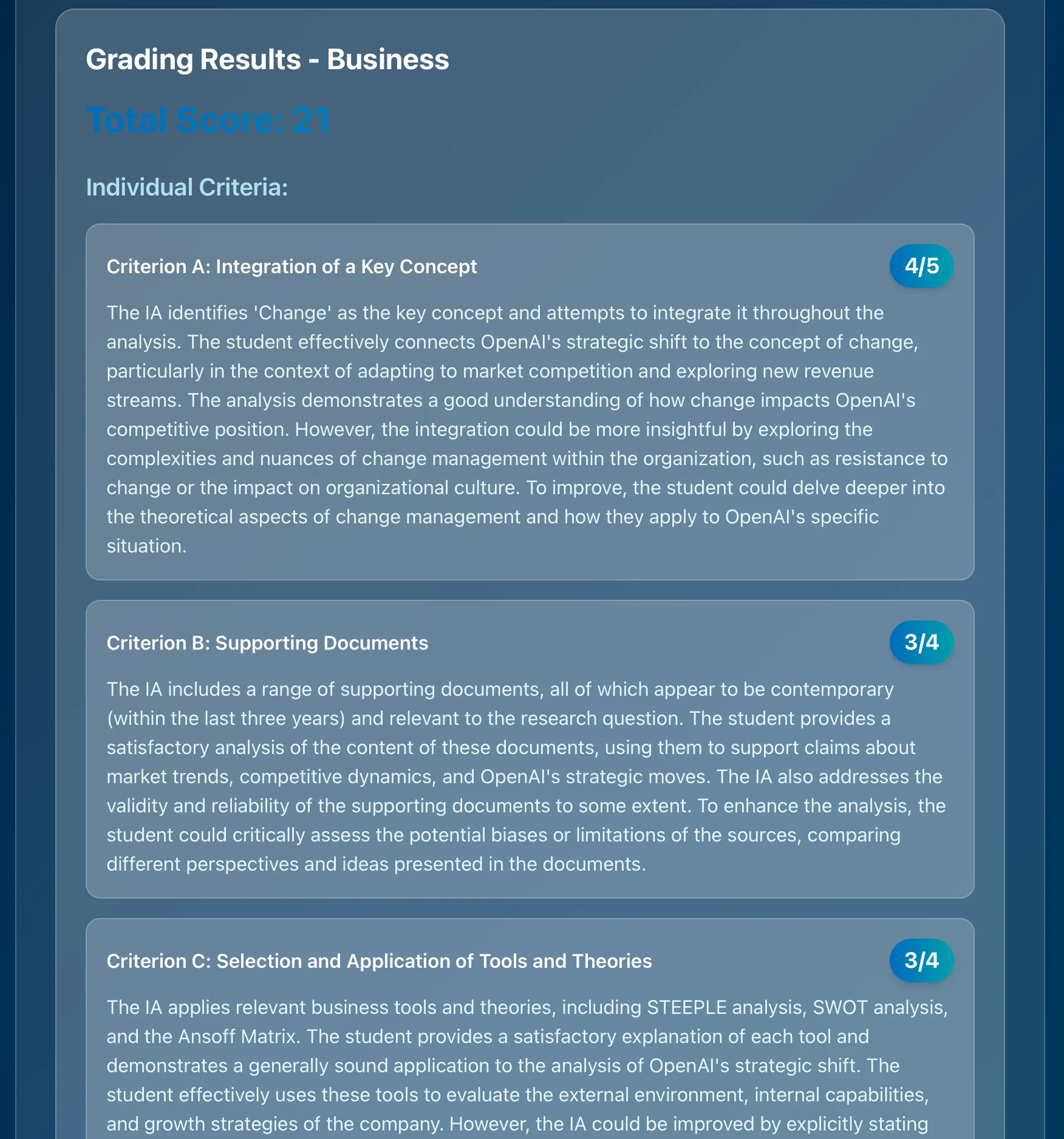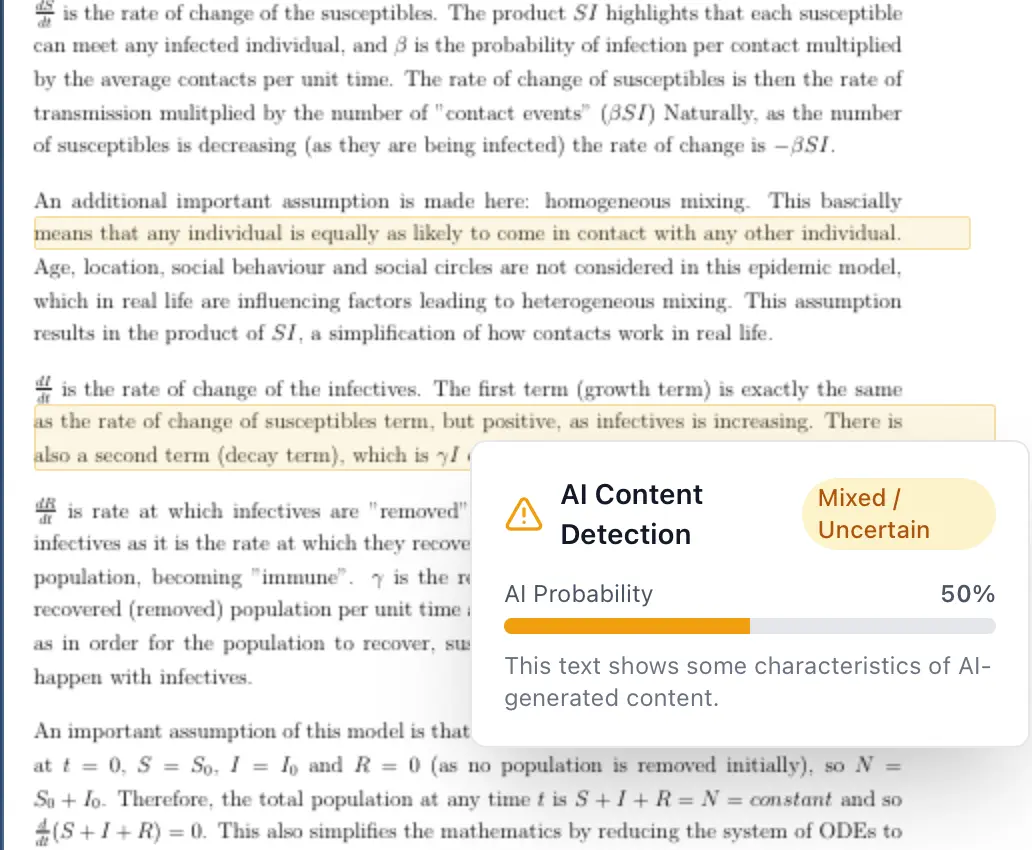Crafting the Perfect Research Question for Your IB History IA
Your IB History Internal Assessment (IA) is a significant component of your overall grade, and arguably, the most crucial step in achieving a high score is formulating a compelling and focused research question. A well-defined question will guide your research, analysis, and ultimately, your conclusion. This blog post will provide you with a comprehensive guide on how to craft the perfect research question for your IB History IA, covering everything from initial brainstorming to final refinement. We'll explore common pitfalls, advanced strategies, and even how AI can help you along the way. By the end of this guide, you'll be equipped with the knowledge and tools to confidently tackle your IA.
Introduction (Answer the Query Immediately)
The IB History IA requires you to conduct independent research and present your findings in a structured and analytical manner. The cornerstone of a successful IA is a well-defined research question. This question acts as the compass guiding your entire investigation. A strong research question should be focused, manageable, and allow for in-depth analysis using historical sources. It shouldn't be too broad (leading to superficial coverage) or too narrow (limiting the scope of your investigation). This guide will walk you through the process of crafting a research question that meets these criteria, ensuring you're on the path to achieving a top score in your IB History IA. We'll cover everything from understanding the assessment criteria to leveraging resources, including AI-powered tools, to refine your question and your final IA.
Struggling with IB Assessments?
Get instant, detailed feedback on your work with AI that understands IB criteria.

Core Content Sections
Understanding the IB History IA Assessment Criteria
Before diving into crafting your research question, it's essential to understand how your IA will be assessed. The IB History IA is graded based on several criteria, including:
- Criterion A: Identification and Evaluation of Sources (6 marks): This assesses your ability to formulate a clear research question and critically evaluate the sources you use. A strong research question is the foundation for scoring well here.
- Criterion B: Investigation (15 marks): This criterion evaluates the depth and focus of your investigation, the quality of your analysis, and the clarity of your argument. A well-defined research question ensures your investigation remains focused and relevant.
- Criterion C: Reflection (4 marks): This assesses your ability to reflect on the challenges and limitations of historical research.
Understanding these criteria will help you tailor your research question to meet the specific requirements of the IA. For example, a research question that allows for the analysis of different perspectives will help you score higher in Criterion B.
Brainstorming Potential Research Areas
Start by brainstorming topics that genuinely interest you within the realm of history. Consider specific events, movements, or individuals that pique your curiosity. Don't limit yourself at this stage; the goal is to generate a wide range of potential areas to explore.
Here are some examples of broad historical topics:
- The French Revolution
- The Cold War
- The Civil Rights Movement in the United States
- World War I
- The Rise of Fascism in Italy
Refining Your Topic: From Broad to Specific
Once you have a list of potential topics, it's time to narrow them down and make them more specific. A broad topic like "The Cold War" is far too large for an IA. You need to identify a specific aspect of the Cold War that you can investigate in detail.
Here's how you can refine your topic:
- Identify a specific time period: Instead of the entire Cold War, focus on a particular period, such as the Cuban Missile Crisis or the Vietnam War.
- Focus on a specific geographical region: Instead of the entire Cold War, focus on its impact on a particular country or region, such as Eastern Europe or Latin America.
- Examine a specific theme or issue: Instead of the entire Cold War, focus on a particular theme, such as the arms race, propaganda, or espionage.
For example, you could refine "The Cold War" into "To what extent did the Cuban Missile Crisis impact US-Soviet relations between 1962 and 1970?"
Crafting a Good Research Question: Key Characteristics
A good research question should possess the following characteristics:
- Focused: It should address a specific issue or aspect of history.
- Manageable: It should be answerable within the scope of the IA.
- Analytical: It should require you to analyze evidence and develop an argument.
- Debatable: There should be room for different interpretations and perspectives.
- Relevant: It should be relevant to the broader historical context.
Examples of Strong and Weak Research Questions
Let's look at some examples of strong and weak research questions:
Weak:
- "What were the causes of World War I?" (Too broad and descriptive)
- "Was the American Civil War justified?" (Too subjective and difficult to prove)
- "Who was Adolf Hitler?" (Too biographical and lacks analysis)
Strong:
- "To what extent did economic factors contribute to the outbreak of the French Revolution?" (Focused, analytical, and debatable)
- "How effective was the policy of containment in preventing the spread of communism in Southeast Asia during the Cold War?" (Focused, analytical, and debatable)
- "To what extent did the Jim Crow laws impact the social and economic opportunities of African Americans in the Southern United States between 1877 and 1954?" (Focused, analytical, and debatable)
The Importance of Keywords
When formulating your research question, pay attention to the keywords you use. Keywords are the terms that you will use to search for sources and conduct your research. Choose keywords that are specific and relevant to your topic.
For example, if your research question is "To what extent did economic factors contribute to the outbreak of the French Revolution?", your keywords might include:
- French Revolution
- Economic factors
- Causes
- Social inequality
- Financial crisis
Using these keywords will help you find relevant sources and stay focused on your research question.
Common Challenges/Mistakes Section
Students often struggle with the following when crafting their research questions:
- Choosing a topic that is too broad: This leads to superficial research and a lack of focus.
- Solution: Narrow down your topic by focusing on a specific time period, geographical region, or theme.
- Formulating a question that is too descriptive: This prevents you from engaging in in-depth analysis.
- Solution: Frame your question in a way that requires you to analyze evidence and develop an argument.
- Selecting a question that is too subjective: This makes it difficult to support your argument with historical evidence.
- Solution: Choose a question that is debatable and allows for different interpretations.
- Failing to consider the availability of sources: This can make it difficult to conduct your research.
- Solution: Before finalizing your research question, make sure there are sufficient sources available to support your investigation.
Pro Tip: Get AI-Powered Grading
Stop second-guessing your grades. Get instant feedback aligned with official IB rubrics.

Advanced Tips/Strategies Section
Here are some advanced tips for crafting a truly exceptional research question:
- Consider the historiography of your topic: Research what other historians have written about your topic and identify gaps in the existing literature. This can help you formulate a unique and original research question.
- Focus on a specific debate or controversy: Identifying a historical debate or controversy can provide a clear focus for your research and allow you to engage with different perspectives.
- Connect your topic to broader historical themes: Consider how your topic relates to larger historical trends and developments. This can add depth and significance to your investigation.
- Use a conceptual framework: Applying a specific conceptual framework (e.g., Marxism, feminism, post-colonialism) can provide a new lens through which to analyze your topic.
- Seek feedback from your teacher: Your teacher can provide valuable feedback on your research question and help you refine it to meet the requirements of the IA.
Technology and Modern Assessment Section
Technology is transforming the way we approach historical research and assessment. Online databases, digital archives, and AI-powered tools are providing students with unprecedented access to information and analytical capabilities.
One area where technology is making a significant impact is in assessment. AI grading assistants, like Marksy, are helping teachers provide consistent, detailed feedback on IB History IAs. Marksy uses official IB criteria to assess student work, providing rubric-aligned scoring, criterion-by-criterion feedback, and suggestions for improvement. This not only saves teachers time but also ensures that students receive accurate and fair assessments.
For students, understanding how AI tools like Marksy use the official IB criteria can be invaluable. It helps them focus on the key elements that will be assessed, such as the clarity of their research question, the quality of their analysis, and the depth of their reflection. By understanding the criteria and how they are applied, students can tailor their work to meet the expectations of the IB.
Marksy helps teachers provide consistent and detailed feedback, ensuring students understand exactly how to improve. This is especially helpful for the IA, where nuanced feedback can make a big difference in a student's final grade.
Conclusion with Clear Next Steps
Crafting the perfect research question for your IB History IA is a crucial step towards achieving a high score. By following the tips and strategies outlined in this guide, you can formulate a focused, manageable, and analytical question that will guide your research and analysis. Remember to consider the assessment criteria, brainstorm potential topics, refine your topic, and seek feedback from your teacher.
Next Steps:
- Brainstorm potential research areas that genuinely interest you.
- Refine your chosen topic by focusing on a specific time period, geographical region, or theme.
- Craft a research question that is focused, manageable, analytical, debatable, and relevant.
- Seek feedback from your teacher on your research question.
- Start researching and gathering sources to support your investigation.